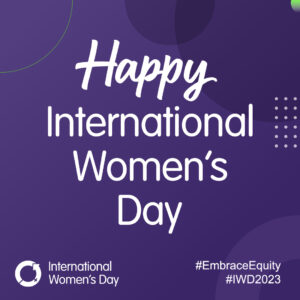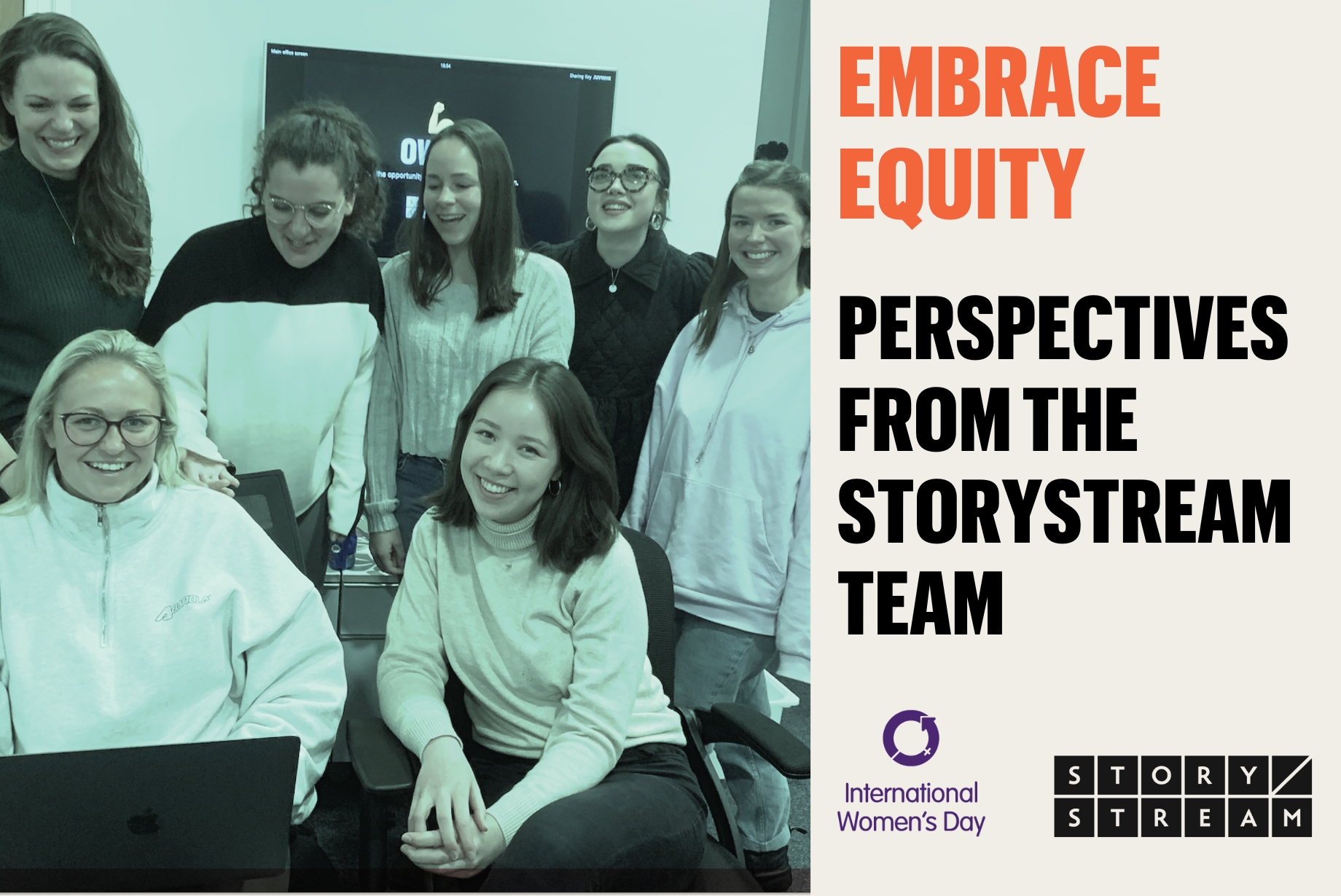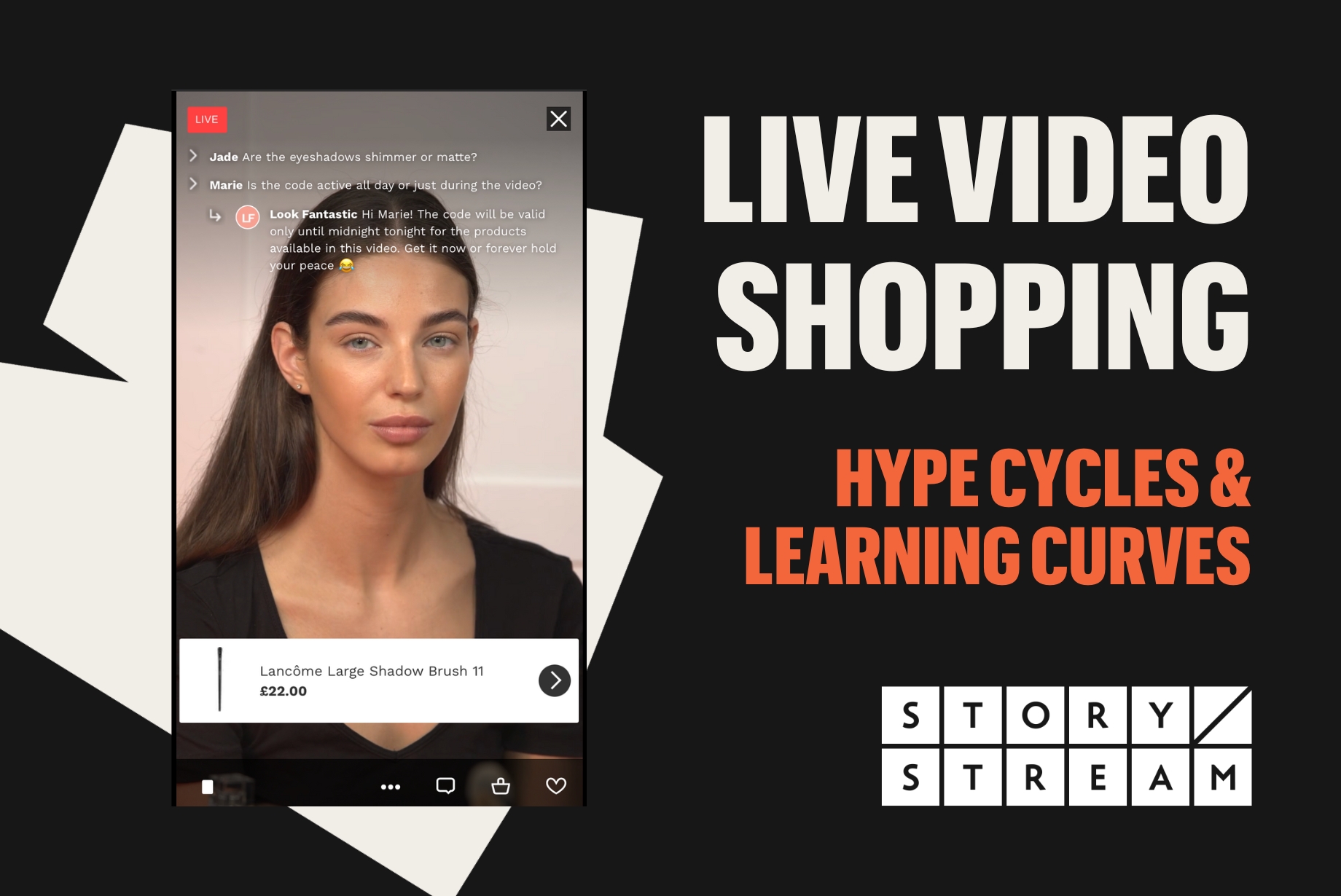International Women’s Day has been an annual fixture for more than a century now, having celebrated its inaugural gathering in 1911. Since then, the day has become a globally-important beacon for the discussion of issues preventing true equality for women in all walks of life.
This year, International Women’s Day is encouraging us to #EmbraceEquity. Equity, an important dimension in the fight for equal representation, means recognising that people “start from different places, so true inclusion and belonging require equitable action” (IWD).
With that in mind, we spoke to four StoryStreamers (Emma, Kay, Mini, and Sophie) about their experiences throughout their careers; what brought them to the world of tech – a sector where only 26.7% of jobs are occupied by women (Forbes) – and what changes they’ve seen, and want to see, as we look toward a more equitable working world for all.
Emma Simpson, Customer Success Director at StoryStream
“When I left University around a decade ago, I was both daunted and overwhelmed by the opportunities and total lack of opportunities in equal measure. A degree in English and Media Studies was purposefully vague because I had no idea what I wanted to do or ‘be’. Brighton had an exciting tech scene and I’d worked in customer service roles for many years already, so a customer-facing tech role felt like an obvious fit. So while I hadn’t always dreamt of becoming a Customer Success Director, I’m really excited about my career today, proud of what I’ve accomplished so far and looking forward to everything else that I plan to achieve.
Working so closely with the automotive industry – a historically male-dominated industry – it’s not unusual to attend a meeting and be the only woman. It’s easy to feel intimidated by this, but I’ve got better at ignoring it, holding my head up and deciding to see that as an opportunity instead. I recently attended an automotive awards ceremony, and while it was predominantly male attendance, I was inspired by the women who were there. I think that attitude helps me to remain positive and enthusiastic about the industry.
I’m sure every woman has a dozen stories about where they’ve been unfairly or inappropriately treated in the workplace because of their gender, but the repeated attempts to raise awareness of that discrimination have helped; it’s everybody’s responsibility to make sure that there are fewer and fewer stories to be told.
While there are now more women in leadership positions in the tech industry (and beyond) than there were perhaps a decade ago, the lack of representation still remains a huge issue in my opinion. I struggle to understand the reason behind this, or perhaps I don’t want to. Ensuring representation across all areas of the business is, though, a key way to address gaps around both equity and equality. Access to leadership positions is no exception.
A lot of gender inequality comes from subconscious things that we do or say on a daily basis. Overcoming this is the responsibility of everyone. My advice to women starting their careers today is to support other women! Don’t see other successful women as a threat to your own success, as that’s a damaging mentality and a pretty lonely place to be. Support, celebrate and empower other women.”
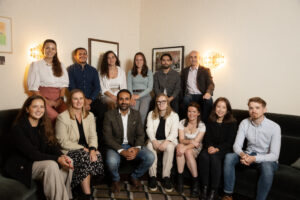
(Emma – front row second from left – is part of StoryStream’s Customer Success team. Sophie sits top row, third from left.)
Kay Calleja, Backend Developer at StoryStream
“I’ve worked in traditionally male-dominated sectors for as long as I can remember (I worked in a music rehearsal studio for years before I decided to switch careers). I grew up with an older brother and always wanted to do what he was doing; I was used to being the only woman in a team of men, so I didn’t see a difference.
I wanted to turn my hobby of designing and building websites into my job. Having a lot of technical knowledge around computing and networking (another hobby!), I joined my first tech company. I worked at Cogapp for four years as a technical support specialist and taught myself how to code on the side and spent my last year there as a junior full-stack developer. I found that actually, logic and problem-solving brought me the most joy – which is when I joined StoryStream as a dedicated backend developer.
As for what attracted me to become a developer in the first place, I like to think and I get a lot of satisfaction in taking thoughts and bringing them to life as code that does something cool!
Encouragingly, I’ve seen a definite shift in women wanting to become involved in tech in the last 8-10 years. When I started my own career in tech, I could count on one hand how many women would be working in a technical role in the local tech companies – but that number has been slowly on the rise.
At times I think there can be a danger of companies “seeming inclusive”, i.e. hiring to hit numbers, and that is problematic. True equity – the theme of this year’s IWD – is hiring the correct person for the job based on their skills, experience and character regardless of their background, beliefs, ethnicity or accessibility needs.
There are certainly still plenty of barriers to getting underrepresented groups into tech in the first place. For those of us already here, showing support to programs that foster and encourage the aspirations of underrepresented groups is a great start. In Brighton and London, programs like CodeBar really do a fantastic job of offering a “way in” to tech with no pressure (where people can try it and see if it resonates).
As for employers: if you can afford to hire individuals who are just starting out and need more intense mentoring, then I think that is an incredible step. Sometimes people need to be given the opportunity. I wouldn’t be where I am if someone didn’t take a chance on me.
There is still a long way to go for sure but we’re heading in the right direction.”
Mini De Silva, CFO at StoryStream
“I fell into the tech sector and my role by chance; my original career plan was to become a chef … but on joining the industry I soon found that the pay was terrible, hours were ridiculously long and it would be unlikely that I would ever be able to afford to buy a house on my income. I decided to find a job that would allow me to work normal hours and apply for a mortgage. After gaining some initial experience in a public sector finance function, I applied for a role at a Canadian tech company and it all started from there. I had to study for my accountancy qualifications on weekends and evenings while working. I was fortunate enough to work for some great companies that supported me to qualify as an accountant, and then subsequently in undertaking an MBA.
There’s been a tremendous amount of positive change during my career in terms of the recognition, treatment and inclusion of women in business. There are significantly more opportunities now; business leaders have realised that organisations achieve far better results by having a diverse workforce that can challenge thinking and provide alternative perspectives. An example: the provision of flexible working for employees, especially working parents, has had a huge positive impact not only for individuals but also for companies that are now able to access a much larger talent pool.
As employers, it is important to understand what needs to be provided to allow an individual to succeed in their role and support them accordingly. Equity in the workplace means treating everyone fairly whilst recognising that everyone is not the same. Ensuring that you have a diverse leadership team is key – this isn’t a tick-box exercise where you have selected a stereotypical representation from a range of people that live in the same area, had a similar education and eat in the same restaurants! Instead, it’s about being aware of unconscious bias, educating yourself and your team, creating more inclusive workplace policies, and instilling diversity into your recruitment process. Real leadership starts with being prepared to be flexible and open-minded.
Women are prone to suffer from imposter syndrome and a lack of confidence. My advice, and hard as it may seem, is to try not to worry about what other people may think. Having a mentor or trusted sounding board to help and support you throughout your career is invaluable. As is being true to yourself and your values.
And if you find yourself working somewhere or for someone that is not aligned with your values, learn from the experience, take the positives from it, leave the negatives behind and move on!”
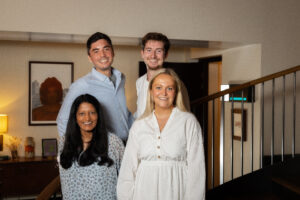
(Mini – front row left – is CFO of StoryStream.)
Sophie Solomon-Hosseini, Senior Customer Success Manager at StoryStream
“I started my career in higher education – which I LOVED – working in a wide variety of roles, including systems-based roles and large-scale transformation projects. From there, I moved into Customer Success in EdTech working in a start-up, and then onto MarTech for a global company. Then I found StoryStream!
Embracing equity is something that means a lot to me; both equality and equity in the workplace are essential to getting the best out of a team (and so too is embracing difference as the key to understanding each other). For me, blind hiring is a key component to ensuring that equity is met. It’s so important that organisations of all sizes have an inclusion and diversity policy that encompasses every step of the hiring process (including management). An equitable future for all means access to employers that treat you right, embrace you for who you are and how you work – and do that regardless of your personal characteristics or where you’ve come from.
I’ve worked in majorly male-dominated teams and, having started my career at 16, I feel as though the fact that I was both a woman and extremely young hindered my progression at times. The shift between working in higher education and then working in tech showed the divide in certain areas. I’ve noticed throughout my career that representation of women is improving with time – not as quickly as I’d like, however.
My message for International Women’s Day is that you can absolutely achieve whatever you’d like. Work hard, stand up for yourself and ensure your voice is heard. I’m not by any means saying that’s easy, but you can do it.
My message to employers and colleagues alike is: treat us how you’d treat anyone male. It really is that simple. Spend time understanding your unconscious bias towards women – and anything else for that matter – and stand up for women in situations where you see others not behaving in a kind or understanding manner. Do not expect women to behave in a certain way – especially when you would not treat a male in the same way.”
A Quick Ask…
If you’re a StoryStream customer and would like to leave us a G2 review, we give $10 to Girls Who Code for every review collected.
And if you aren’t a StoryStream customer – check out Girls Who Code and their phenomenal programmes anyway!
